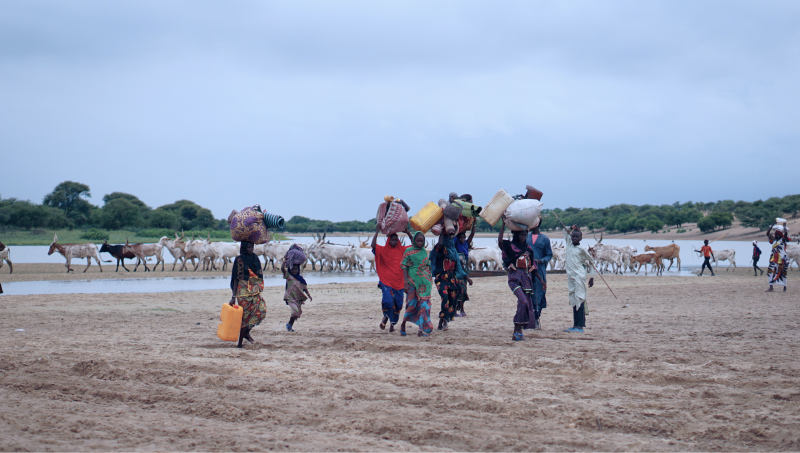Following the call of 10 international NGOs, INSO conducted a scoping mission in Chad in June 2023 and is now working toward registration and shoring funding to initiate this start-up. To address the immediate concerns of aid workers, our roving training team recently completed a series of one-off sessions on essential humanitarian safety and access.
Nadia Berger, INSO’s Regional Director for Central Africa, emphasised the urgent necessity of our presence in Chad: “We’ve heard the clear need from NGOs in Chad for more effective safety coordination and information sharing. The war in Sudan and recurring violence makes it clear that INSO’s presence will help aid workers to do their job more safely and effectively.”
Chad’s ongoing humanitarian crisis
Chad is experiencing a chronic and long-term humanitarian crisis, characterised by food and physical insecurity and underdevelopment, which has left millions needing support.
Although the country has been considered relatively stable in the region in recent years, this stability varies across the country, and internal dynamics are bringing increased uncertainty.
Additionally, the country is surrounded by conflicts in neighbouring countries that often spill over the borders. The war in Sudan, which erupted on 14 April 2023, has also driven millions of people to flee into Chad. These factors have placed NGOs and aid agencies under immense pressure, making it challenging to address new and existing needs.
Humanitarian access impediments are high and are directly affected by a severe lack of relevant information flow and interagency coordination.
Improving coordination & information sharing
INSO’s presence will fill gaps in information analysis to improve NGOs’ understanding of their operating environment, strengthen coordination within the humanitarian community, and provide training to help aid workers be better prepared.
“Experience tells us that humanitarian coordination is made better when a neutral voice, like INSO, is at the table. That’s what we are for the NGO community in many countries, and that’s what we will be in Chad,” adds Nadia.
Furthermore, the roving training team’s recent mission to Chad in September reinforced the demand for INSO’s permanent presence. These sessions saw 79 frontline aid workers equipped through six training sessions.
“The professional training put us in real-life situations in the field, helping improve our objectivity and reveal the decisions we will have to make working in high-risk areas.” Nzaba Aymar Samba, MEAL Manager and introduction to Security & Access trainee in Baga Sola, Chad.
“In the space of two days, we’ve learned so much about safety, with the active participation of the participants who have a wealth of experience.” Bawoye Serge Doulgue, Administrative Assistant for Enfants du Monde Tchad and NGO Security Management trainee in N’Djamena, Chad.
Looking ahead
With a clear mandate established by the scoping and trainings, INSO’s immediate focus is on initiating the registration process and identifying funding avenues. We have appointed a Country Director to lead this effort, with the ambition to be operational and start delivering services to NGOs by mid-2024.
INSO provides analysis and advice to NGOs operating in insecure and conflict affected countries. We are grateful for the support of The European Commission (ECHO), USAID’s Bureau for Humanitarian Assistance, the Swiss Agency for Development and Cooperation, the United Kingdom’s Foreign, Commonwealth & Development Office, the German Ministry of Foreign Affairs, the Ministry of Foreign Affairs of the Netherlands, Global Affairs Canada, Royal Ministry of Foreign Affairs of Norway, United Nations’ Office for the Coordination of Humanitarian Affairs (OCHA), the French Ministry of Foreign Affairs, Le Gouvernement du Grand-Duché du Luxembourg and the Swedish International Development Agency (Sida).

